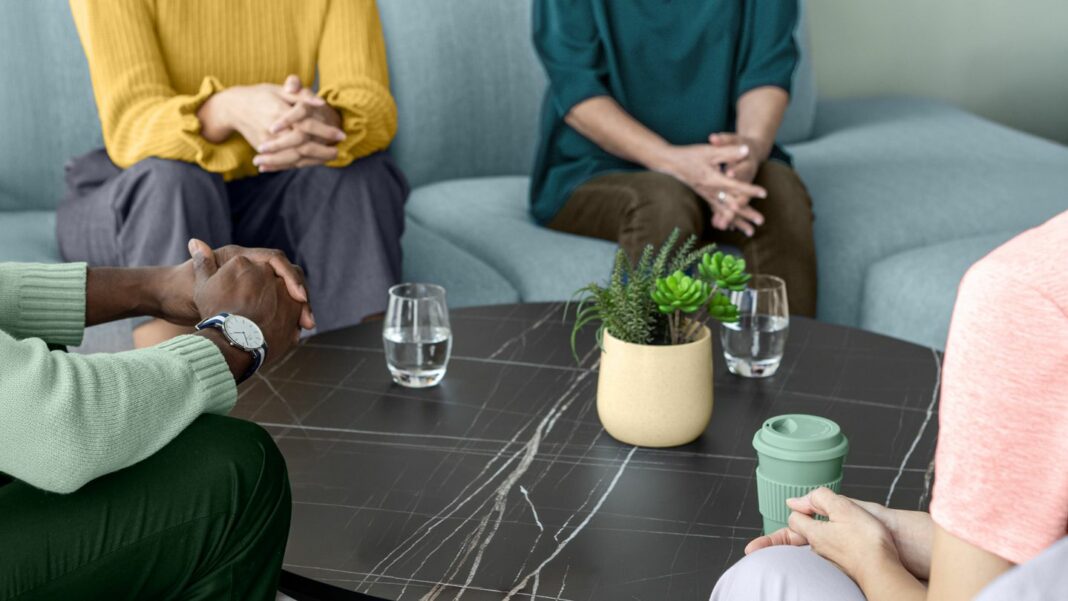No one knows what it’s like to have bipolar disorder more than people who’ve been diagnosed with the condition themselves. That’s where peer support comes in — a network of people who also have bipolar disorder, and are ready to share their experiences, talk about their challenges, and offer up hard-won advice.
Here are some organizations that offer expertise, advice, and support — all curated by those with firsthand experience of bipolar disorder.
National Alliance on Mental Illness
The National Alliance on Mental Illness (NAMI) was launched by a small group of families in 1979, and has grown into an alliance of more than 600 local affiliates and 49 state organizations. NAMI, which describes itself as “the nation’s largest grassroots mental health organization dedicated to building better lives for the millions of Americans affected by mental illness,” works to provide advocacy, education, and support to individuals and loved ones who live with mental health conditions such as bipolar disorder.
NAMI affiliates offer a slew of stellar peer-led classes, presentations, advocacy programs, and more, headed by trained volunteers who provide free education, skills training, and support — all delivered from the perspective of those who know firsthand what it’s like to live with bipolar disorder. Here’s just a sampling of NAMI’s peer-led options:
NAMI Peer-to-Peer This class for adults with mental health conditions such as bipolar disorder is aimed at encouraging growth, healing, and recovery.
NAMI Hearts+Minds There’s a close link between mental health and physical fitness — and this wellness program aims to help people optimize both.
NAMI FaithNet This network of NAMI members, friends, clergy, and congregations of all faiths and traditions promotes caring, welcoming congregations and emphasizes the role spirituality can play in the recovery of individuals of faith who live with mental health conditions.
You can connect with NAMI through these socials:
Depression and Bipolar Support Alliance
Depression and Bipolar Support Alliance (DBSA) is a national organization that focuses on mood disorders, including bipolar disorder. Its network of more than 450 support groups across the country, both in-person and online, are typically led by peers. They offer participants an opportunity to share their experiences, learn facts about bipolar disorder, discuss coping strategies and skills, and find hope and empowerment.
Along with meeting in groups, you can also connect with people from your community who can relay valuable information about mental health professionals and services in your area, as well as share tips and techniques to better manage bipolar disorder. DBSA also offers culturally-specific support groups as part of their endeavors to promote diversity, equity, and inclusion.
Support is also available through printed material or videos, such as ones featuring inspirational personal narratives that offer honest insights, acknowledgment of challenges, and hope and a reminder that they are not alone.
Connect with and follow DBSA on:
Mental Health America
Bipolar disorder affects just as many Black Americans as Americans of other races. And yet, Black Americans are less likely to receive a diagnosis and treatment for the condition, according to Mental Health America (MHA). Some of the reasons for the disparity include mistrust of health professionals, stigma and misunderstanding about mental illness, cultural reliance on religion over mental health professionals, and socioeconomic factors that can limit access to healthcare.
That makes connecting with other Black Americans with bipolar disorder all the more important. MHA’s Center for Peer Support offers information and resources that can help Black Americans connect with peers and get the support they need.
You can sign up to get regular updates on peer support topics such as news, upcoming events, and the latest research. Some key facts you can learn more about include:
- How peer support can benefit people of color with bipolar disorder
- The value of peer support
- How peer support can help combat loneliness and isolation
- How peer support can benefit youth
- The benefits of online peer support
To connect with MHA, go to:
International Bipolar Foundation
Founded in 2007 by parents of children with bipolar disorder, the International Bipolar Foundation (IBPF) works to empower people living with bipolar disorder through education, advocacy, and support.
While IBPF doesn’t directly offer peer support for people living with bipolar disorder and their loved ones, they provide information about and links to organizations that host peer-led groups. IBPF also features inspiring recovery stories and has a newsletter called My Support, which gives readers valuable ways to learn and connect. You can also receive:
- News about bipolar disorder community events and developments
- Links to blogs from community members, experts, and authors
- Webinars featuring researchers, advocates, and other experts
- The latest updates on new treatments and other research
- Answers to common questions, which are fielded by experts
You can connect with IBPF on:
